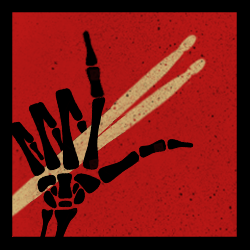One of the few things I remember from my French classes in high school was that the letter is called “double V” in that language. Why did English opt for the “U” instead?
You can hear the French pronunciation here if you’re unfamiliar with it:
https://www.frenchlearner.com/pronunciation/french-alphabet/
V and W are right next to each other in alphabetical order, which seems to lend further credence to the idea that it should be “Double V” and not “Double U”. In fact, the letter U immediately precedes V, so the difference is highlighted in real-time as you go through the alphabet:
- …
- U
- V
- W
- X
- Y
- Z
It’s obviously not at all important in the grand scheme of things, but I’m just curious why we went the way we did!
Cheers!
well, okay, so:
U, V, and W are all descended from the same letter in Latin. V and W are the consonate versions of that ur-letter and U is the vowel version.
But W is much closer to the remaining vowel sound: We could spell “whiskey” as “uiskey” without really changing the pronuncuation, for example.
So despite the glyph, it’s much closer to a U than a V; it’s the U that saw glyphic differentiation even though it’s V that saw phonic differentiation.
So to put it in plain words:
The English are an illiterate bunch of alcoholics who base their entire language on the way it’s pronounced when you’re in the pub.
While the French are a stuck up bunch of pretend aristocrats who based their entire language on the scripts of the court.
Wow, not really off the mark.
Upper class English spoke French in Shakespeare’s time, seeing the English language as the tongue of the commoners, lower class folk.
Part of what made Shakespeare’s plays different - he brought comedy similar to Moliere’s into English.
How would you explain the Japanese? I’m only curious because something that draws me to the language is its “common sense” approach to pronunciation.
Super basic example: か ka が ga
When they import words from other languages the phonetic interpretation makes so much more sense to me. This actually drives me away from learning a lot of European languages.
I’m only curious because something that draws me to the language is its “common sense” approach to pronunciation.
Ever looked at Finnish? I know a lot of people say of a lot of their own languages that “we say things like they’re written”, but we really do. There’s like one phone (linguistics term, not telephone) in the language. It’s the velar nasal that is in the word “language”, ironically. Other than that, purely phonetic. You can put any word in front of me and I’ll pronounce it the same way any other Finn would, where as in English, asking “how do you pronounce that” is common as hell.
Anyway, look at some of these examples:
A horse = hevonen [ˈheʋonen]
Peasoup = hernekeitto [ˈherneˌkːei̯tːo]
Come = tule! [ˈtuˌle]
Nah man, that’s just English.
Other European languages are mostly completely phonetic with exceptions. English is a mess.
You would just have to learn the clusters. Like in French “eaux” makes an /o/ sound, but it’s always that same sound, wherever you encounter it.
Polish looks like letter salad for the uninitiated, but is also consistent in its own rules. Cz = tsh, sz = sh and so on. Once you’ve cracked the code, it’s not difficult to pronounce polish words.
“uiskey”
That is actually very close to the original Irish words: uisce beatha (ish-kuh ba-ha), meaning “water of life”.
The Water of Life features in lots of fairy tales. Is that what is being referred to? Is Water of Death another name for an alcohol?
The Water of Life features in lots of fairy tales. Is that what is being referred to?
Likely. Alcohol, in many cultures had a spiritual/religious characterization. We literally have an ancient Egyptian beer recipe because it was written into a hymn praising Ninkasi, a Sumerian goddess of beer.
Is Water of Death another name for an alcohol?
That’s a good question. It’s Fernet (/s).
I do not actually know that. I would suspect that it would be another substance. Maybe an acid or toxin.
https://en.wikipedia.org/wiki/W
The Germanic /w/ phoneme was, therefore, written as ⟨VV⟩ or ⟨uu⟩ (⟨u⟩ and ⟨v⟩ becoming distinct only by the Early Modern period) by the earliest writers of Old English and Old High German, in the 7th or 8th centuries.[8] Gothic (not Latin-based), by contrast, had simply used a letter based on the Greek Υ for the same sound in the 4th century. The digraph ⟨VV⟩/⟨uu⟩ was also used in Medieval Latin to represent Germanic names, including Gothic ones like Wamba.
It is from this ⟨uu⟩ digraph that the modern name “double U” derives. The digraph was commonly used in the spelling of Old High German but only in the earliest texts in Old English, where the /w/ sound soon came to be represented by borrowing the rune ⟨ᚹ⟩, adapted as the Latin letter wynn: ⟨ƿ⟩. In early Middle English, following the 11th-century Norman Conquest, ⟨uu⟩ regained popularity; by 1300, it had taken wynn’s place in common use.
deleted by creator
When I was first teaching my son the alphabet, we got to “W” and, before I could say it, he called it “two vees!” It was so cute.
I write my "w"s like “uu”. With curves.
Must make it challenging to express “uwu.”
UuuU
Oh you’re gonna love learning how to write Russian cursive.
I’m going to?
It’s not impossible, but I don’t really plan to have to.
C’mon comrade, be a good sport. It’s a long train journey to gulag.
That’s how you write it in cursive. You know for us that are old enough to remember what cursive was.
“uu” ends on a down stroke. W ends on an upstroke, just like the difference between u and v.
Not just cursive; lower case “W” is often written uu. It just depends on the style of the writer.
Whats the keyboard shortcut for that?
Someone changed the font.
Fun fact, in Italian “w” is sometimes referred to as “doppia v” which is “double v”.
This is nvts. N. V. T. S.
Hahaha, history of the world!
I am not 100% sure of the answer (I am sure there are websites where this is explained), but I am reasonably sure it has to do with the fact that V and U used to not be distinct letters, but variations of the same letter.
I find both of those names silly, I like the fact that my first language (German) doesn’t call any letter “double” anything.
But we have Eszett
(s + z = ß)
which I usually call scharfes S
Why do we say ‘M’ and not ‘double N’?
Why aren’t there doubles of more letters? I could go for a ‘double O’ or a 'double I"
Maybe even some 'double D’s
At the very least. I’d go so far as to say letters up to and including double G would be desirable.
I may be wrong about the actual reason for this - as ‘double V’ is also quite common - and it may just end up being some kind of ‘well when the printing press came to England’ thing, but:
In the classical Latin alphabet, the letter ‘V’ was not actually representative of what we today recognise as the /u/ sound (or its variants). It was in fact the written form of the /u/ sound (and related variants). So when the W was introduced to the English alphabet, I guess it was indeed a ‘double /u/‘.
in many of the objectively superior languages, the names of letters correspond to the sounds they make. ah, beh, cuh, duh…
I dont get using several sounds tp represent one letter. Just do like us and say a, b, c…
In Hawaii, almost all W’s are usually a long V, depending.
deleted by creator
Or just call it “we”, like the first letter of w-ater.










